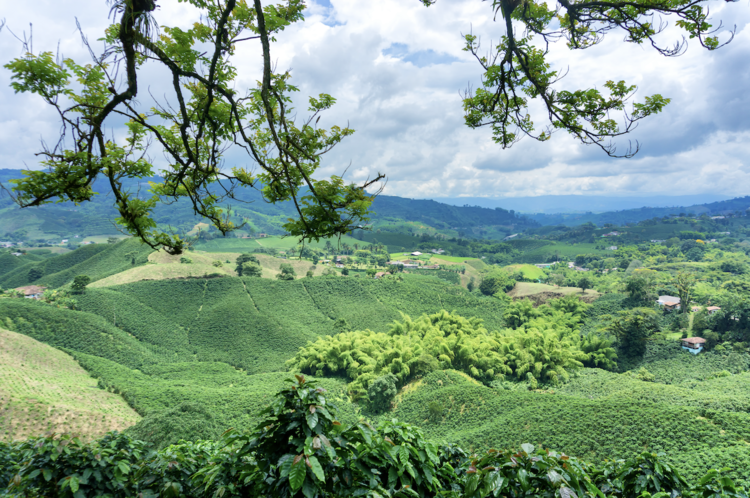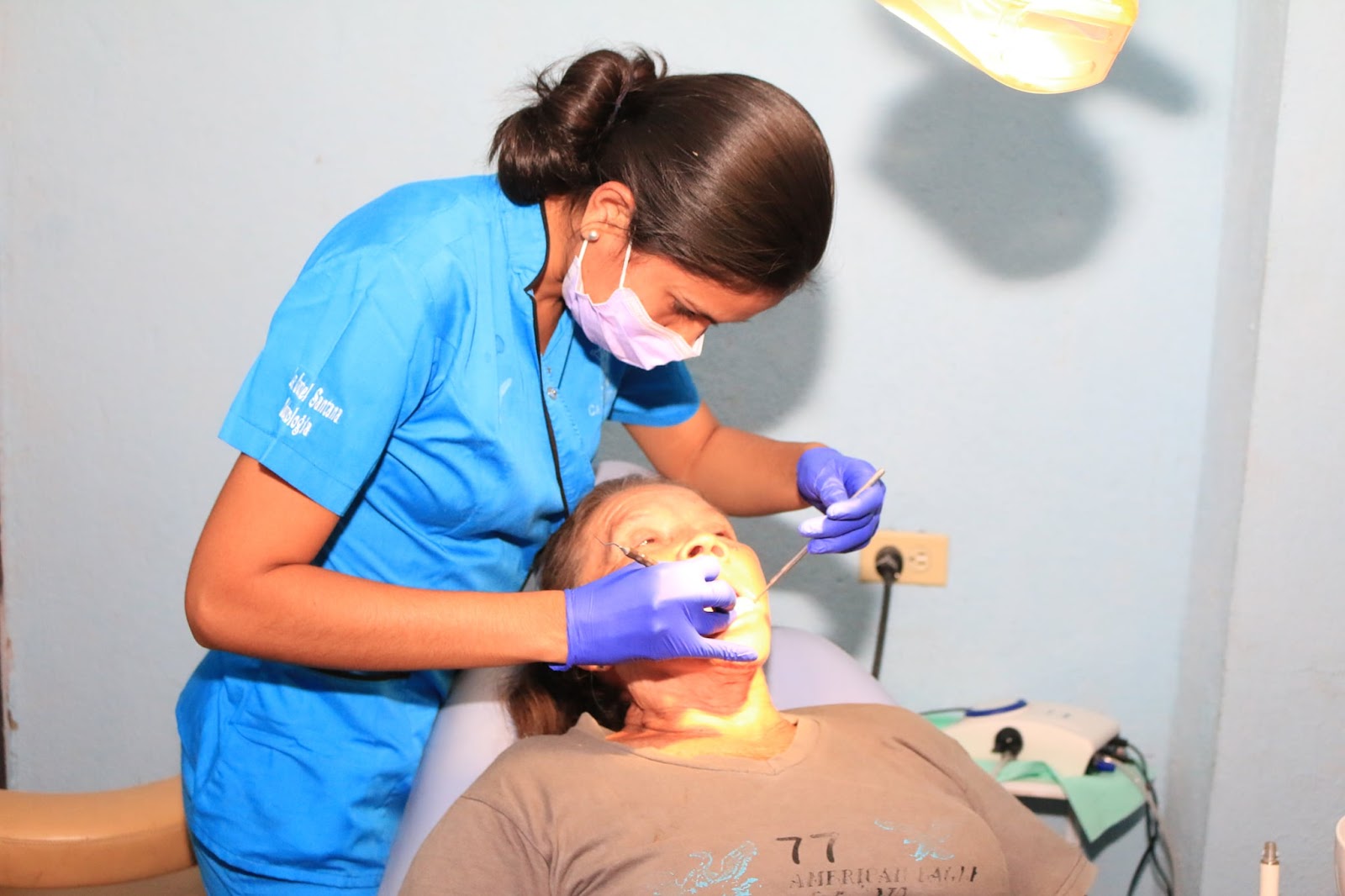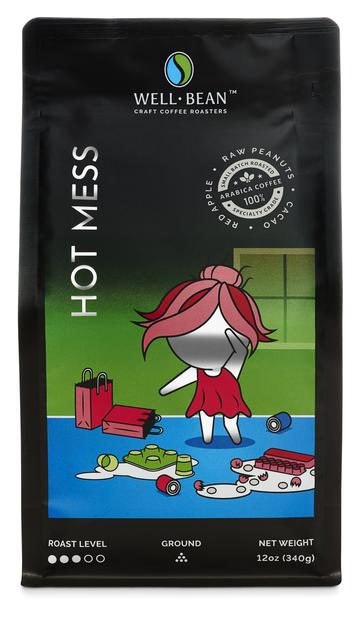Get to know Well-Bean Coffee Roasters – a woman-owned roastery inspired by Nicaraguan coffee farms

A few minutes every morning is all you need.
Stay up to date on the world's Headlines and Human Stories. It's fun, it's factual, it's fluff-free.
Melissa Brown’s Well-Bean Coffee Roasters began as a small endeavor to support her parents’ mission in Nicaragua and became a company based in Direct Trade relationships and women empowerment.
“My parents started a non-profit, not knowing they were starting it,” says Brown. “They went down to Nicaragua in 2002 to help with a humanitarian effort after Hurricane Mitch, and they just fell in love with the people and with the idea of helping somehow. They started going down several times a year, and finally in 2007 they moved full time. I’ve been down there with them every year since 2002, just to travel to see them.
“I wondered what we could do to get involved on the States side. [My husband and I] went in 2012, and we did a coffee farm tour just as an excursion. My husband said my eyes lit up, and he was like, ‘Oh God, what’s she gonna do?’”
The answer to his question was a Direct Trade roastery that imports Nicaraguan coffee to sell in the United States. Just six weeks after her visit to the coffee farm, in February of 2013, Brown incorporated Well-Bean.
The beginnings of Well-Bean Coffee Roasters
“It took quite a while to become profitable and sustainable,” admits Brown. “We started with a little coffee cart on a college campus, and then that failed miserably. So then we did a little drive-thru coffee booth … It didn’t work either … I kept seeing these office coffee trucks that would drive around and deliver to offices. So I thought let’s see if I can move our coffee that way, and that was the right choice.
“It blew up and really started taking off in 2016. And then the rights were acquired by Canteen. It was a multi-million dollar acquisition, so we were able to give a nice chunk of money as an endowment to New Song.”
Brown discovered her love of coffee at the age of 18, but she never imagined the scale of labor involved in its production until her visits to Nicaragua. Farmers harvest the beans around three months each year. In order to meet production demands, farmers labor 12 or more hours, seven days a week. Many of these farms are family businesses that recruit laborers from various areas for seasonal work. Due to relocation and the long hours, these workers usually bring their family. The children are often left to fend for themselves during the work day. Many of these farms don’t bring in enough revenue to fund education and food for the kids.
“When you’re looking around [these farms], you see kids that need to be in school,” says Brown. “There needs to be a pharmacy, and there needs to be a cafeteria. There’s so much need on the farm.”
Brown aimed to respond to that need by engaging in a Direct Trade relationship with these farmers. Direct Trade relationships result in a higher profit for farmers (at least 50%) than if they were to go through a middleman, which means more resources to support the workers and their families. From the roastery’s perspective, they forge relationships that guarantee unique and quality products.
“Over the last seven years, the farm has had a full-on cafeteria and a school for elementary and secondary, and it’s just this thriving farm now,” enthuses Brown. “We want to be able to eventually source directly from all of our partners.”
Why Direct Trade?
Fair Trade is a certification that can be a burdensome expense for family-owned businesses. Though Fair Trade provides farmers with fair wages, a significant portion still goes to the brokers instead of the farmers. Direct Trade provides the farmers with competitive wages and the roasters with lasting relationships and incredible coffee.
So why isn’t Direct Trade on the frontlines of specialty coffee? A barricade on each side – one for the roasters and one for the farmers – tends to crop up when roasters want to source directly from coffee farms.
For roasters, there is an expectation that a company representative must visit the farm from which they source every 8-12 months. For farmers, they often don’t have the means or the knowledge to export their product. If roasters and farmers can get around these two potential roadblocks in their business relationship, then Direct Trade surpasses Fair Trade in terms of mutual benefits.
New Song Mission

Brown’s parents founded New Song Mission, a non-profit organization based in Christian community development. They currently work with six rural villages. Access to these programs is not dependent on sharing the Christian faith, and leaders in each community help with connections and resource distribution.
New Song has several initiatives in place to better supply these communities with the resources they need to flourish. These include leadership training, education, sports ministry leagues, clean water initiatives and medical and dental care. They have even launched a project to grow, harvest and sell moringa with the goal of making New Song a self-sustaining organization. Moringa is a plant often lauded as a superfood.
“They started a moringa farm, and they just got the rights to export to the States, so I’m helping them set up an Amazon store,” says Brown. “Those profits will help support the mission in addition to what Well-Bean supports. Well-Bean supports about 30% of their annual overhead and their budget.”
Brown and her parents share a passion for health and wellness that manifests in Well-Bean’s mission and New Song’s medical and dental care initiative.
“There’s socialized medicine in Nicaragua, so you’d think health care would be a non-issue,” says Brown. “The problem is if they can’t get to the hospital, they can’t be seen. And oftentimes the hospitals are pretty far away from these rural villages.”
Women empowerment in specialty coffee

What began as a staple consumer good in the 1950s, often associated with the home and therefore with femininity, has transformed into a competitive industry plagued by sexism and snobbery.
The prevalence of men in competitive specialty coffee creates an imbalance in how companies market their products to consumers. Espresso, or stronger drinks, have a masculine connotation, while the industry markets drinks containing milk or sugar as more feminine. But it doesn’t only affect consumers; it affects women within the industry, from baristas to business owners.
“My business is female-owned, and I didn’t realize how rare it was,” says Brown. “So I got into the business and oftentimes people would ask me if it was my dad’s or husband’s company. And it would shock me how rude that was. I realized women-owned businesses are rare and that a farm run or managed by a woman is even more rare.
“The farm we work with in Nicaragua is managed by a woman, so she runs the entire farm. She doesn’t own it. It’s owned by two brothers who are fantastic, but she runs the day-to-day, and does an amazing job … Supporting women is a big part of our mission.”
Brown reports that consumers and colleagues within the industry have mixed reactions to the graphic design on Well-Bean’s coffee bags. The medium roast dubbed “Hot Mess” depicts a cartoon woman with ruffled pink hair in distress over the spilled groceries at her feet, while a cartoon woman atop a mountain peak brandishes a sword in the dark roast called “Slay the Day.”

Sure, the designs look different from most other specialty coffee packaging, but the initial reactions point to a deeply-rooted sexism that limits the roles of women in the world – and in coffee.
The back of Well-Bean’s coffee bags read, “At Well-Bean we aim to be defined by more than just fantastic coffee. As a woman-owned coffee roastery, we work to empower women of all kinds, with the goal of making the world a better and fairer place for all. In short, at Well-Bean we source, roast and deliver a ‘cup with character.’”
Is your business doing something cool that you want to show off? Get in touch at hello@themilsource.com




Comments ()